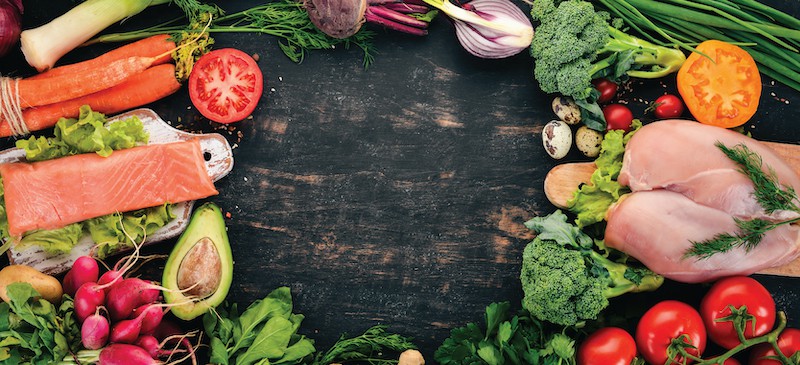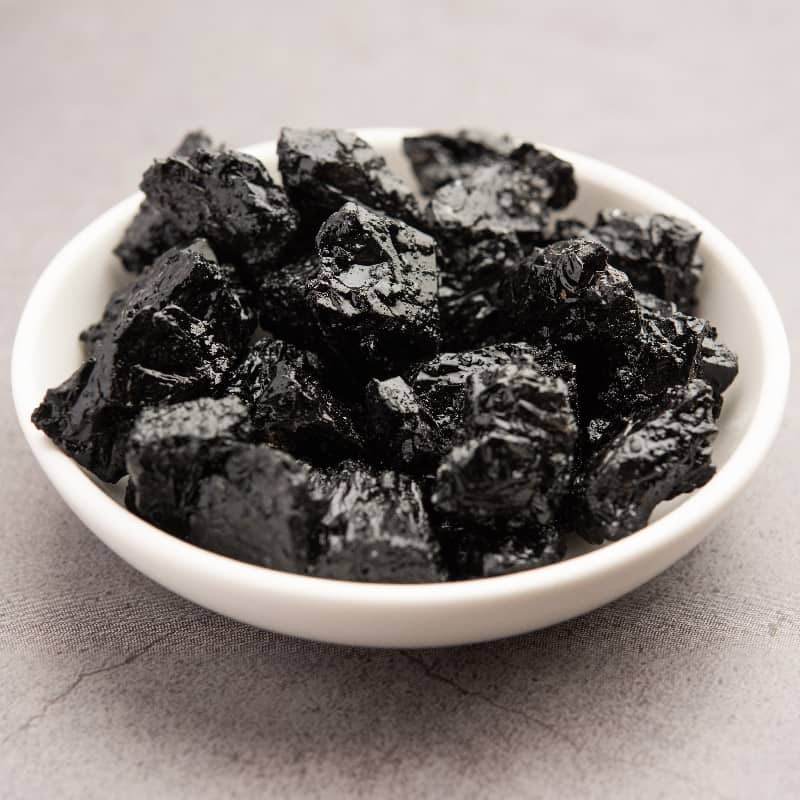This Dr. Axe content is medically reviewed or fact checked to ensure factually accurate information.
With strict editorial sourcing guidelines, we only link to academic research institutions, reputable media sites and, when research is available, medically peer-reviewed studies. Note that the numbers in parentheses (1, 2, etc.) are clickable links to these studies.
The information in our articles is NOT intended to replace a one-on-one relationship with a qualified health care professional and is not intended as medical advice.
This article is based on scientific evidence, written by experts and fact checked by our trained editorial staff. Note that the numbers in parentheses (1, 2, etc.) are clickable links to medically peer-reviewed studies.
Our team includes licensed nutritionists and dietitians, certified health education specialists, as well as certified strength and conditioning specialists, personal trainers and corrective exercise specialists. Our team aims to be not only thorough with its research, but also objective and unbiased.
The information in our articles is NOT intended to replace a one-on-one relationship with a qualified health care professional and is not intended as medical advice.
HCG Diet: Effective for Weight Loss or Dangerous Fad Diet?
February 26, 2020

For those looking to lose weight fast, the HCG diet plan may sound like a pretty appealing option. In fact, many turned to the HCG diet in 2019 in an effort to boost fat-burning, ramp up weight loss and combat cravings, simply by switching up their eating patterns and using drops, pellets, lozenges or shots of HCG-based products a few times per day.
However, the diet is also highly controversial, with researchers and regulatory agencies alike warning that it could be dangerous, overpriced and ineffective.
This article takes a closer look at the HCG diet, including what it is, how to follow it, and whether or not it can be an effective method for weight loss.
What Is HCG?
Human chorionic gonadotropin, or HCG, is a hormone that is produced by the body during pregnancy. In fact, pregnancy tests typically work by detecting elevated levels of HCG in the urine or blood.
In addition to supporting fetal growth and development, HCG injections are also sometimes prescribed to treat certain conditions in both men and women.
In women, HCG injections are used to promote fertility and ensure ovulation. Meanwhile, in men, HCG can help reduce symptoms of hypogonadism by increasing testosterone production.
What Is the HCG Diet?
Within the last few years, the internet has been flooded with HCG diet before and after photos, along with HCG diet reviews from proponents and skeptics alike. So what exactly is the HCG diet?
A British physician named Dr. Albert Simeons is credited with the creation of the diet, which was originally known as “The Simeons Method.” In the 1950s, he began pairing HCG with a low-calorie diet to help treat obesity in his patients.
Besides administering HCG diet injections six times per week, the plan also involved limiting intake to just 500 calories per day and setting strict guidelines on the food groups, protein sources and number of meals permitted daily.
Today, the diet looks a bit different and is divided into three phases — a fat-loading phase, low-calorie phase and maintenance phase — each of which has specific rules and regulations for which foods are permitted, along with how much HCG you should take.
According to supporters of the plan, following the diet can help boost weight loss by ramping up your metabolism and decreasing hunger levels. However, it has also been criticized as unsafe, ineffective and even dangerous.
How Does It Work?
The creators of the HCG diet plan say that HCG can help boost fat-burning and improve body composition by shifting deposits of body fat and making them available for use as fuel. Not only that, but they also say that HCG can help improve blood sugar control, stabilize blood pressure, decrease chronic pain and inflammation, and reduce hunger by decreasing levels of ghrelin.
The diet may also work by restricting high-calorie foods and creating a caloric deficit. Because the diet involves limiting calorie consumption to less than 500 calories per day, you are likely to expend more calories than you consume, which can lead to weight loss.
However, keep in mind that there is virtually no research to support the purported benefits of the HCG diet. According to a review published in Journal of Dietary Supplements, “The human chorionic gonadotropin or ‘hCG diet’ is such a diet, which after half a century still has no evidence to support its efficacy; in fact all scientific publications subsequent to the original article counter these claims.”
How to Follow It
The HCG diet is split into three different phases:
- Fat-loading phase: This is the first phase of the diet, which involves filling your diet with high-calorie, high-fat foods for two days as you start taking HCG drops or injections.
- Low-calorie phase: This phase lasts between three to six weeks, depending on your weight loss goals, and requires you to continue taking HCG drops while limiting your intake to less than 500 calories per day.
- Maintenance phase: During this phase of the diet, you should stop taking HCG diet drops or injections and slowly start to increase your intake back to normal. For the first few weeks of the maintenance phase, you should introduce high-carb foods into your diet slowly.
For those who have significant amounts of weight to lose, the three phases of the diet can also be repeated several times until desired weight loss is achieved.
During the weight loss phase of the diet, only two meals should be consumed per day. A typical HCG diet menu includes a serving of lean protein, a fruit, a vegetable and a piece of bread.
Some of the specific approved ingredients on the HCG diet food list include:
- Lean proteins: chicken, lean cuts of beef, white fish, shrimp, lobster
- Fruits: apples, oranges, strawberries, grapefruit
- Non-starchy vegetables: kale, spinach, tomatoes, cauliflower, broccoli, zucchini
Meanwhile, the following foods should be avoided in any HCG diet recipes and meals:
- High-fat foods: butter, vegetable oil, lard, nuts, seeds, fatty fish
- Added sugar: table sugar, syrup, honey, desserts, soda, sweet tea, sports drinks, juice, baked goods
- Starchy vegetables: potatoes, sweet potatoes, peas, parsnips, plantains
HCG Shots, Drops, Pellets, Sprays and Products (Plus Dosage)
There are a variety of HCG products on the market in the form of injections, drops, pellets, lozenges and sprays. However, HCG diet drops are one of the most common forms and can be purchased from many online retailers, including directly on the website of the HCG diet.
If using drops, it’s recommended to take three times daily before meals during the fat-loading and low-calories phases of the diet.
Note that all HCG products on the market are considered homeopathic, which means that they may not actually contain any HCG and are not able to increase levels of HCG in the blood effectively. HCG injections used to treat certain conditions are available but require a prescription from a health care professional.
Risks, Side Effects and Interactions
There are many potential HCG diet dangers and adverse effects to consider. For starters, HCG products on the market are not approved or regulated by the Food and Drug Administration, so it is unclear what the long-term effects on health may be.
On its website, the FDA even notes that these products are technically illegal and advises consumers to stop using and discard any homeopathic HCG products that they may have purchased.
Because the plan involves severely restricting caloric intake, following the diet could make it harder to meet your needs and may increase the risk of nutritional deficiencies and malnutrition. Other HCG diet side effects may include fatigue, headaches, irritability and constipation.
Following the diet long-term may even cause several more serious side effects. In one case study out of South Carolina, a woman who was following the diet for just two weeks experienced shortness of breath, swelling and blood clots in her legs and lungs as a result of the HCG diet.
Healthier Alternatives
Instead of wasting time and money on ineffective and downright dangerous fad diets like the HCG diet, focus on filling your diet with a variety of healthy whole foods and limiting your consumption of processed foods and added sugar. Not only can this support long-lasting, sustainable weight loss, but it can also promote overall health and help keep you feeling your best.
For best results, enjoy a variety of fruits, veggies, proteins, legumes and whole grains. Unlike the HCG diet, you can also include moderate amounts of healthy fats in your diet, ideally from foods like olive oil, coconut oil, nuts, seeds and fatty fish.
While decreasing your caloric intake can be a useful tool for weight loss, it’s best to ensure that you still get enough calories to meet your daily needs without cutting your calories too low. The amount of calories that you need each day can depend on a number of different factors, including your age, height, weight, activity level and health status.
As a general rule of thumb, decreasing your caloric intake by around 500–1,000 calories per day can result in around one to two pounds of weight loss per week.
Conclusion
- What is the HCG diet? This popular eating plan involves pairing HCG drops with a very low-calorie diet plan to promote weight loss and amp up fat-burning.
- According to proponents of the diet, it works by increasing fat metabolism, reducing hunger and stabilizing blood sugar levels.
- However, there is no evidence to support the diet, and it could potentially be dangerous.
- In addition to increasing the risk of nutritional deficiencies, it may also cause irritability, headaches and fatigue. It is also unclear what ingredients are in the HCG drops and what the long-term effects on health could be.
- Instead of resorting to pricey and ineffective fad diets, following a healthy, well-rounded diet rich in nutrient-dense foods can support weight loss and better health.













